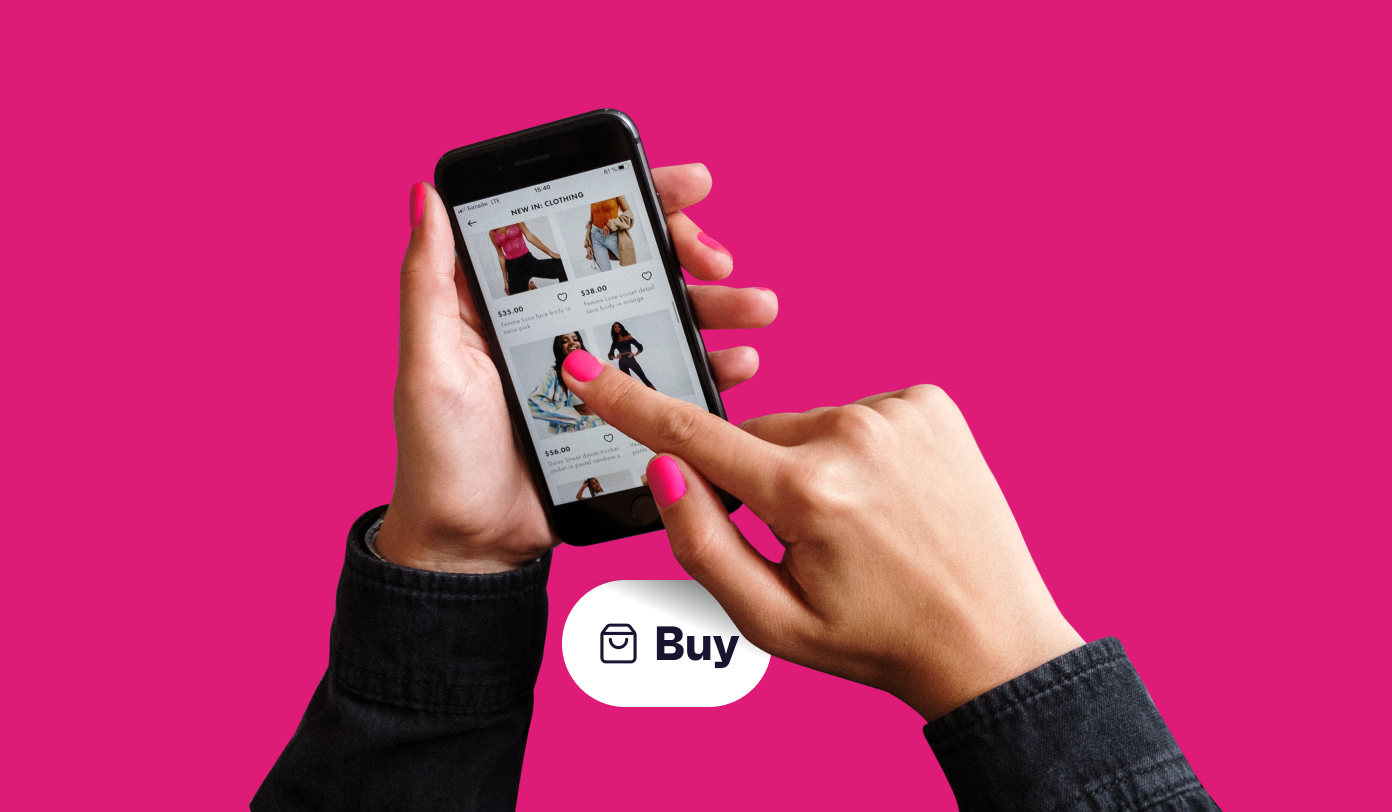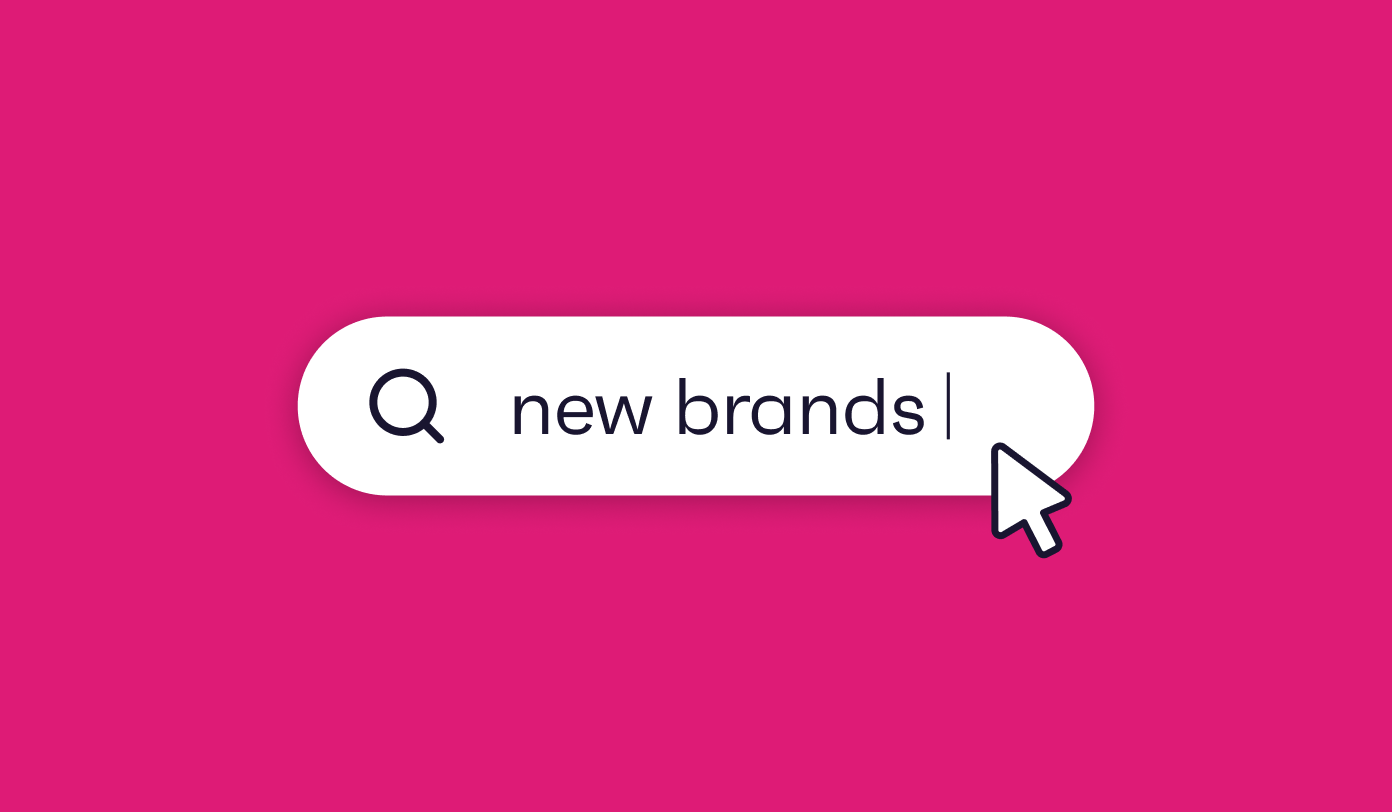Whether you view new advances in technology as a threat or an opportunity, one thing’s for sure: using AI in marketing has the power to change the way we connect with consumers.
Some people are excited about it, some are ambivalent, and others are feeling the discomfort of the unknown. The proof? In the US, interest in AI has grown 36% YOY despite AI being the fastest-growing fear for Americans.
The big questions for everyone are the same. How can you embrace the inevitable, maximize the advantages, and reap the benefits of artificial intelligence in marketing?
It can feel a little bit like whiplash trying to keep up with everything, but we have some helpful hints and practical tips to make sure you’re not left behind as this trend surges ahead at full speed.
Here’s the lowdown on what we’ll be covering:
1. What is AI marketing?
2. The current state of play
3. Crafting an AI marketing strategy
4. Examples of AI in marketing
5. AI tools to support your marketing strategy
6. Benefits and challenges of AI in marketing
7. Leveraging artificial intelligence in marketing
8. AI in marketing FAQs
Let’s get into it.
What is AI marketing?
If you’re trying to wrap your head around exactly what AI in marketing is, you’re not alone. To put it simply, AI marketing is when brands use artificial intelligence as part of their marketing strategy. It can be used for content generation or streamlining processes like data collection and analysis to get precise insights on consumers.
These insights can be used to get a deeper understanding of market trends, personalize the customer experience, and create more targeted ads without weeks of research.
The current state of play
Right now, there are a lot of different perspectives and opinions about AI, but for the most part, concern is the common denominator. Outside of China, the majority of consumers are concerned AI will be used for unethical purposes (70%) while others worry about how AI tools will impact artists and creatives (63%).
It’s like a revolving door of hope and anxiety, trust and skepticism. Especially when you look at figures like these:
- 71% of consumers say AI tools are developing at an alarming rate, yet 60% of consumers are excited about its development
- 27% of consumers think AI will allow employees to save time on tasks, but 26% say AI tools will put jobs at risk
- 44% say they use AI tools at least weekly in the workplace, while 64% most often use a search engine to find information on the internet
The truth is there’s no right or wrong way to feel about AI, it’s all about why and how you use it.
At the moment, the most popular reasons for using AI tools are work (32% say this), learning a new language (32%), and personal organization (30%). But let’s dig deeper into how to use AI for marketing.
Crafting an AI marketing strategy
When you zero in on all the ways AI marketing can benefit brands and agencies, it’s easy to see how it can help you stay ahead of the curve without adding more to your plate in terms of time.
Looking for inspiration? Here are 5 useful ways you can use AI for marketing:
1. Strategy and ideation
Need support with a project? Chatbots can be great partners for brainstorming sessions when you need a little help sparking new ideas, or different perspectives/getting discussion points to use as a springboard
2. Audience research
Having access to AI-driven consumer insights means you’re not wasting time when the pressure is on. Because AI tools can collect, sift, and summarize much faster than humans, you can understand how your audience thinks and feels much faster.
3. Content and SEO
A solid content and SEO strategy is your secret weapon for making sure your content gets seen by the right consumers. Tools that help improve headings, titles, meta descriptions, and keyword choices give you the power to create engaging content quickly – or optimize it once you’re done.
4. Ad targeting
Personalized ads are not only how you connect with your audience, but also increase your performance, revenue, and new customer acquisition. With the right tools, you can harness real-time data to identify different segments and their preferences, automatically target ads to the audiences most likely to convert, and boost ad performance by delivering highly relevant ads that resonate with customers.
5. Design
Save time and resources with an AI co-creator that can help cut the design process from weeks to minutes. Create the picture you’re looking for with image-to-text prompts, quickly execute different design options to choose from, and automate tasks like background removal, object recognition, and image enhancement. You can even use AI to focus eye contact in a video if your presenter is noticeably reading a teleprompter.
Examples of AI in marketing
Still not sure where to start? Check out these examples of brands that are getting AI marketing right:
Netflix
There are lots of streaming services to choose from but Netflix stands out for its clever use of AI to improve the customer experience. They use machine learning models to predict users’ preferences and create personalized content recommendations based on viewing history, search queries, and rating patterns.
American Marketing Association
This community of marketing professionals used AI to create personalized email subject lines and custom-curated articles for each of their 100,000+ newsletter subscribers based on member interest data. The result? Their monthly subscriber engagement increased by 42%.
Orange France
At first glance, you may think this mobile network’s ad is just a cool highlight reel of well known men’s soccer players performing impressive goals and tricks, but there’s a catch.
It’s actually edited footage of female players scoring big. With the help of VFX and AI deepfake technology, this ad superimposes men’s faces onto the bodies of French women’s team to put a spotlight on sexism and unconscious bias in sports.
AI tools to support your marketing strategy
If you’re ready to try out AI marketing for the first time or dig your heels in with more resources, here’s your toolkit to kickstart things without taking up more time.
Check out these AI tools you can use for your next strategy:
- GWI Spark
Meet GWI Spark - your AI-powered research sidekick that cuts through the noise to bring you real consumer insights. While other AI tools scrape the internet for whatever they can find, GWI Spark taps into exclusive survey data from nearly a million people across 50+ markets. The result? Smarter, richer insights you won’t get anywhere else - helping you make decisions with confidence, not guesswork.
- ChatGPT
You can use this generative chatbot to help with content creation. It has the ability to answer questions, write code, create lists, analyze data, and more when prompted.
- Instant charts by GWI
Instant charts allows you to seamlessly integrate OpenAI into your workflow. All you need to do is type a question into our consumer research platform. And just like that, you’ll get a chart full of insights to power up your marketing strategy and help you understand your audience. If you want to know more, book a discovery call today.
- Grammarly
This AI assistant not only corrects writing mistakes like spelling, grammar, and punctuation, but it also reviews content for clarity and tone, engagement potential, and readability to optimize all of your copy.
- MarketMuse
MarketMuse uses AI-powered technology to automate your research process so you can optimize content with ease. Get useful SEO recommendations, keyword guidance, and suggestions for internal links that drive traffic and engagement.
- Instant audience insights by GWI
With this tool on our consumer research platform, you can get a snapshot of consumer demographics, interests, and attitudes in just one click. All you have to do is create an audience or use an existing one (like Gen Z), and you’ll get top data points based on the most popular profiling points in seconds.
The benefits and challenges of AI in marketing
Consumers are right for their concern and their excitement. There are plenty of things that can go right but there are also some risks involved with diving into the AI revolution. As always, it’s all about balancing the pros with the cons.
Benefits
- Streamline your efforts and save time
Keep up with the quick pace of consumer trends with time-saving and cost-efficient tools that can automate repetitive tasks, reduce errors, and improve decision-making.
- Hyper-personalization
Quickly collect and process customer data so you can understand what resonates with your audience, create customized messages or products, and tailor experiences that drive user engagement and loyalty.
- Always available
When your creative genius appears at 10pm, you can bounce ideas around with someone (or something) that’s always happy to help, rather than scribbling on the back of a napkin before a morning catch up.
Challenges
- Some consumers are worried about the safety implications
AI touches on matters close to people’s hearts – like job security, so it’s likely worries will keep climbing. While there are ways that brands can use AI ethically, there’s still a lot of room for potential risks.
- It requires a lot of human supervision
There’s a lot AI can do, but it can’t do anything without prompts, direction, and correction from us – the humans.
- Unrealistic expectations
While we all wish AI could fix all the problems and do all the things, it’s important to be realistic about its capabilities and limitations.
Leveraging artificial intelligence for marketing
AI-powered marketing allows brands to do more in less time. Although it may be scary for some people, AI is here to stay and it’s only going to get smarter. The best way to stay ahead is to understand the challenges and opportunities so you can adjust your marketing strategy accordingly.
With tools that improve efficiency, speed up decision-making, and act as a creative partner, AI marketing can be another way for brands to boost the performance and ROI of campaigns.
AI in marketing FAQs
1. How is AI used in marketing and how can I use it in my business?
Artificial intelligence tools can be used to help with strategy, content ideation, SEO, audience research, ad targeting, and design.
2. What impact has machine learning made on the marketing industry?
Businesses can analyze consumer data much faster and tailor their marketing campaigns to targeted audiences. It helps to improve the effectiveness of their campaigns, increase ROI, and enhance customer experience.
Report
Uncover the biggest trends for 2024
Get ahead





.webp?width=495&height=317&name=pink_thumb_graphs%20(1).webp)
.webp?width=495&height=317&name=pink_thumb_letter%20(2).webp)
